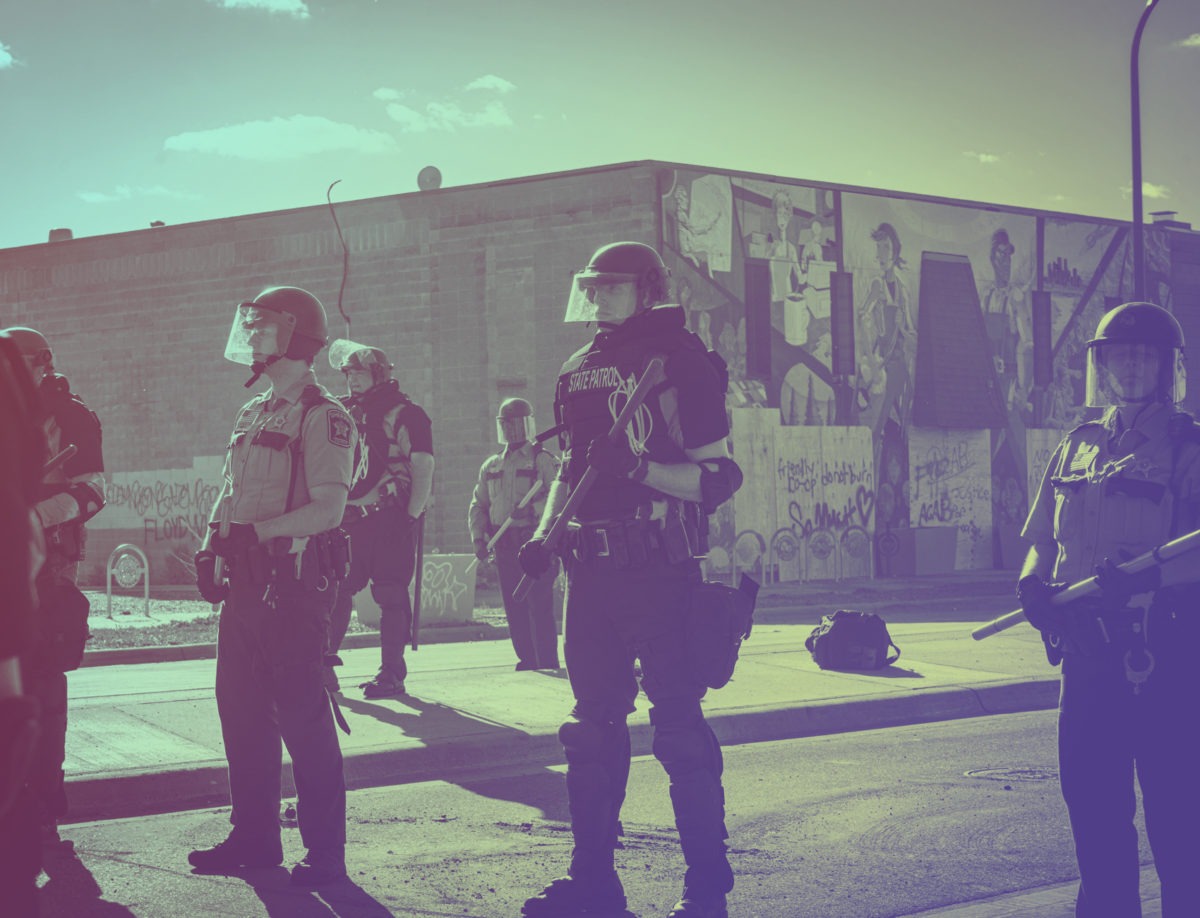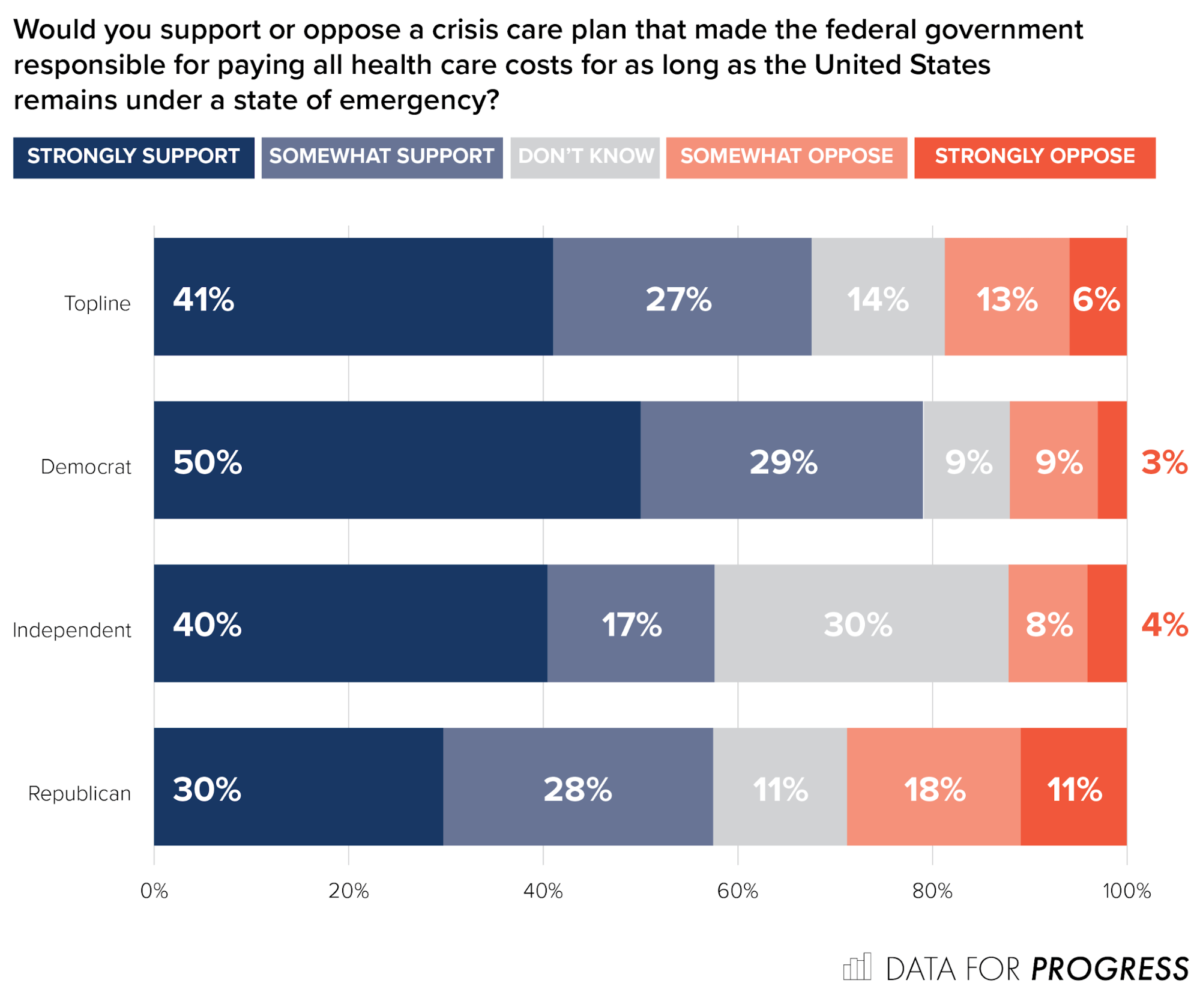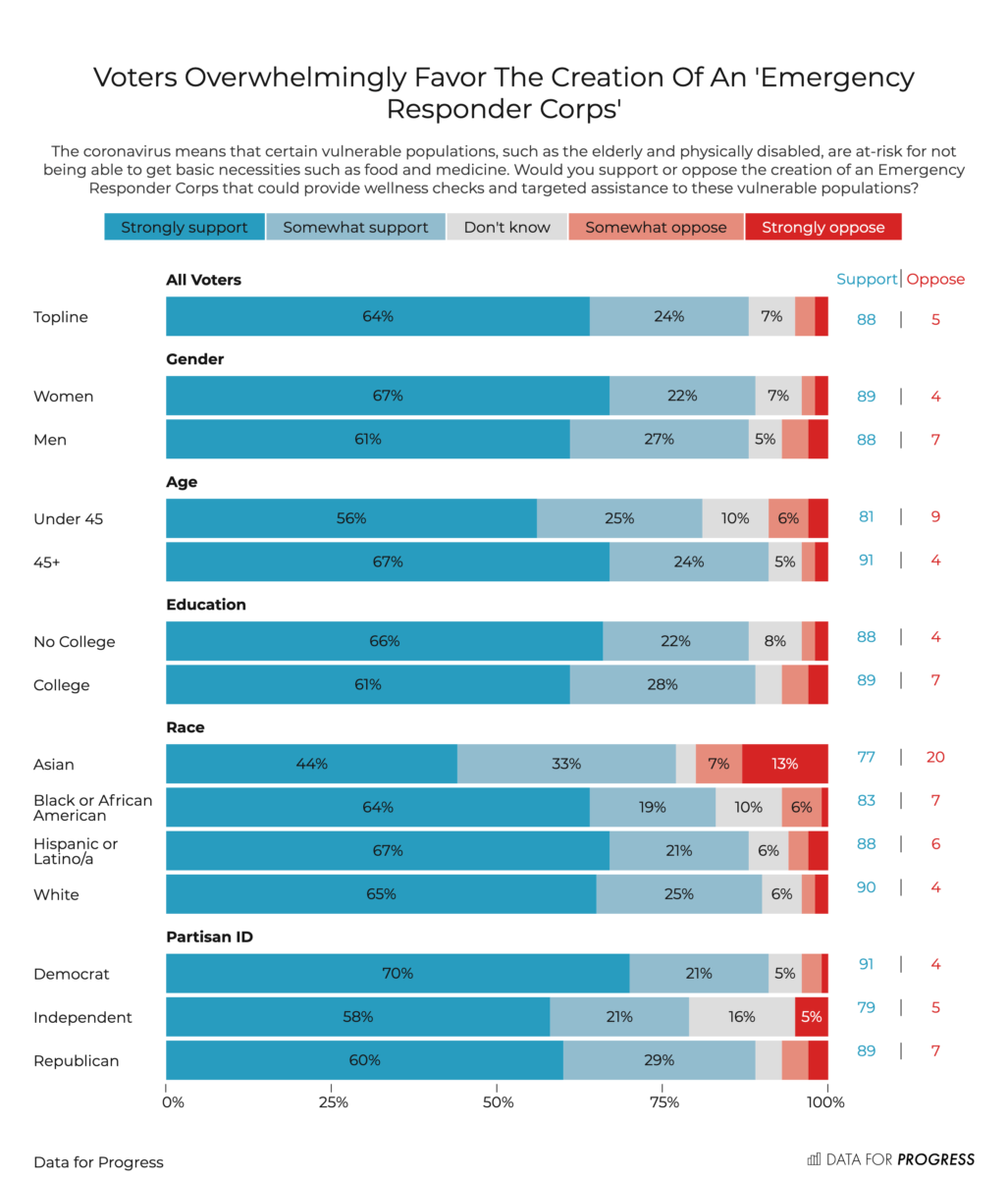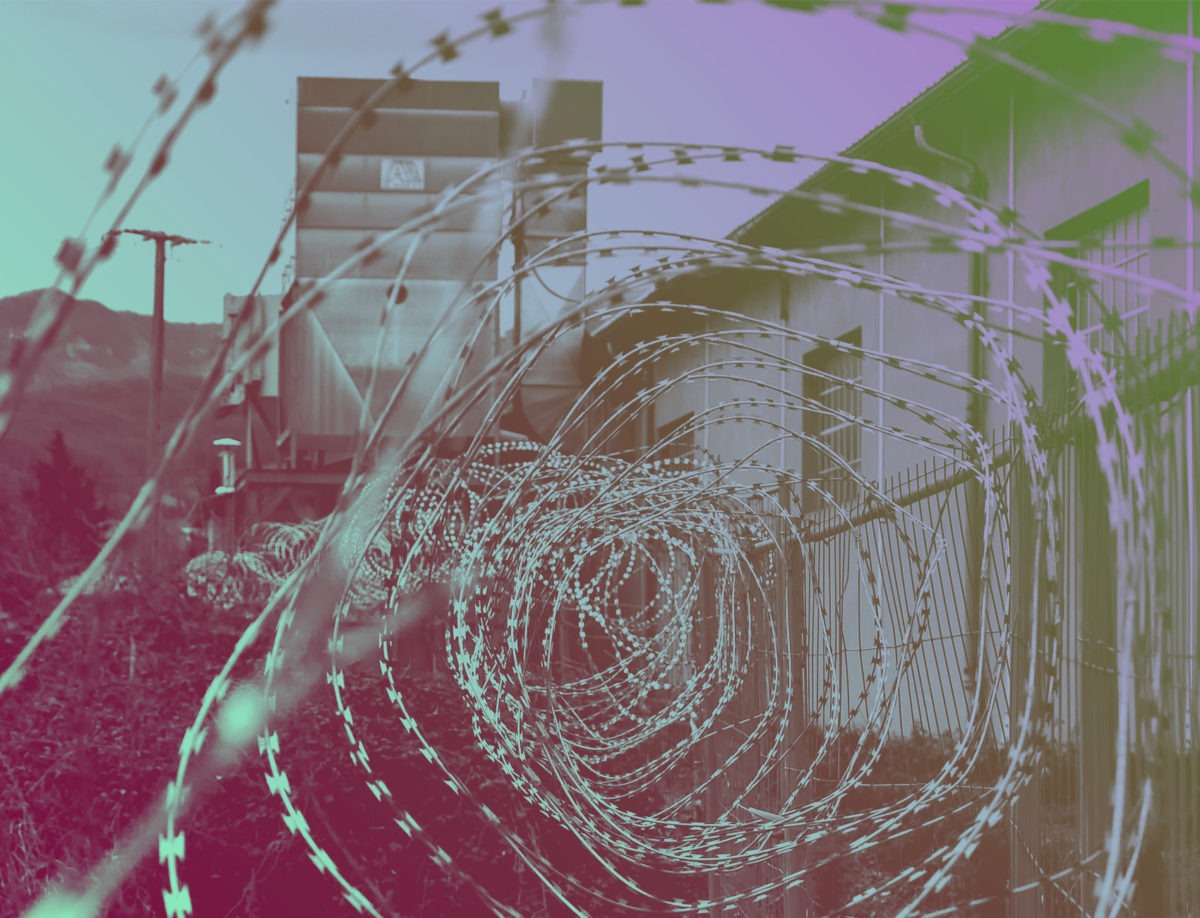
Policing Is Not ‘Public Safety’
Real public safety policies should promote overall health and account for the extraordinary harm that policing and incarceration inflict.

Real public safety policies should promote overall health and account for the extraordinary harm that policing and incarceration inflict.
Executive Summary Amid a significant spike in deaths among individuals experiencing homelessness in San Francisco, including a rise in overdose deaths, expanded harm reduction practices and substance use treatment during the COVID-19 pandemic have shown promising results in reducing death and harm from opioid use. The interventions include providing emergency shelters for higher-risk adults and […]
Executive Summary American voters believe our legal system should prioritize helping and supporting people over incarcerating them—and probation and parole programs must be reformed to serve that function, new polling shows. Voters want fewer people in jails and prisons, and fewer people subject to surveillance and control by law enforcement. Instead, they want probation and […]
Executive Summary In the race for Maricopa County Attorney between Democrat Julie Gunnigle and Republican Allister Adel, both candidates have claimed the mantle of “reformer,” as polls consistently show broad support for policies that will reduce Arizona’s reliance on prisons and hold police officers accountable for misconduct. In the state’s most populous county, appearing to be the most “tough […]
BACKGROUND INFORMATION ON PROBATION Introduction This nation’s probation system was devised as an alternative to incarceration that permitted convicted individuals to remain in their communities while participating in rehabilitative interventions. By addressing the root causes of crime, targeted interventions were able to keep individuals out of jail on two fronts—by avoiding incarceration initially and reducing […]
Executive Summary A new Data For Progress and The Justice Collaborative Institute poll shows that Maricopa County residents would be more likely to vote for a Maricopa County Attorney (head prosecutor) if she supported ending the prosecution of marijuana possession offenses, commuting sentences currently being served for marijuana possession, and expunging previously convicted possession convictions. […]
Executive Summary In the wake of the police killings of George Floyd and Breonna Taylor, a powerful nationwide movement emerged calling to divert money from the police as a solution to police brutality and the systemic racism inherent in current policing methods. In the movement’s view, diverting money would mean passing local policies that take funds originally earmarked […]
Executive Summary A Data For Progress and The Justice Collaborative Institute poll shows a bipartisan majority of Maricopa County voters—including 71% of Democrats and 51% Republicans—are more likely to vote for a county attorney who pledges to not prosecute women for seeking an abortion if Roe v. Wade is overturned. These results make clear that Maricopa County […]
Through a loophole in the 13th Amendment, governments and corporations profit from cheap, incarcerated labor. This analysis is part of our Discourse series. Discourse is a collaboration between The Appeal and The Justice Collaborative Institute. Its mission is to provide expert commentary and rigorous, pragmatic research especially for public officials, reporters, advocates, and scholars. The […]
Executive Summary For decades, prosecutors and advocates strove to make the criminal legal system more victim-centered. This resulted in more money being funneled towards prosecutions and policing as well as laws that now require harsher penalties and more regular notifications for victims. But it has also produced, paradoxically, a downgrading of social services, counseling, medical […]
Executive Summary Cities play a vital role in protecting the health and safety of their residents. But they have been increasingly thwarted by their own state governments, thanks to a relatively recent uptick in “preemption,” where a higher level of government uses either executive authority or legislation to limit the authority of a lower level […]
Executive Summary In 1970, President Richard Nixon signed the Controlled Substances Act (CSA) and classified marijuana under Schedule I, a designation reserved for drugs considered to be highly addictive and that have no accepted medical use. But the decision to classify marijuana alongside heroin and PCP (fentanyl and cocaine, for comparison, are classified under Schedule […]
Executive Summary Racial disparities in health and wellbeing are well documented. In 2003, the Institute of Medicine issued the landmark report Unequal Treatment: Confronting Racial and Ethnic Disparities in Healthcare, which connected racism in mortgage lending, access to housing, employment, and criminal justice to racial health disparities. This report and the World Health Organization’s 2008 […]
Executive Summary As things stand, many interactions with crisis response systems in the United States result in a trip to jail or an emergency room. Both of these options are costly, inefficient, and often result in the same people coming back again and again. There is a better way: Integrated Service Facilities (ISFs) can provide […]
Executive Summary In a national poll, we asked voters whether they support comprehensive marijuana reform that would legalize marijuana and begin to address the historic, intergenerational harms wrought by decades of racially disparate enforcement. We specifically asked about the Marijuana Opportunity Reinvestment & Expungement (MORE) Act, legislation that would decriminalize marijuana at the federal level […]
Executive Summary When voters are provided two options regarding cutting or maintaining current levels of defense spending and provided arguments for and against, they support a ten percent decrease by a 14 percentage point margin. If defense spending was decreased by ten percent, healthcare (40 percent) and responding to the coronavirus pandemic (37) were the […]
Police should no longer occupy all of our vital support systems in our communities. This research and analysis is part of our Discourse series. Discourse is a collaboration between The Appeal, The Justice Collaborative Institute, and Data For Progress. Its mission is to provide expert commentary and rigorous, pragmatic research especially for public officials, reporters, […]
Through this mechanism, communities can accept accountability for the racism they allow to flourish by failing to disrupt it. This research and analysis is part of our Discourse series. Discourse is a collaboration between The Appeal, The Justice Collaborative Institute, and Data For Progress. Its mission is to provide expert commentary and rigorous, pragmatic research […]
Executive Summary In 2018, more than 5,300 people in California died from a drug overdose, the most of any state in the country. There were 650 more deaths in California than in Florida, the state with the second highest number, and close to 4,500 more deaths than in West Virginia, the state with the highest […]
Executive Summary Hundreds of thousands of people across the country and around the world have taken to the streets to demand an end to police violence and racism in the criminal legal system, moved by the devastating murders of George Floyd, Breonna Taylor, Tony McDade, Ahmaud Arbery and many others, as well as a broader […]
Executive Summary On March 27, we warned about the urgent need for decarceration of jails and prisons to prevent large-scale outbreaks of COVID-19 that would lead to severe illness and death, both within facilities and beyond their walls. Since then, our fears have been realized. On April 5, Michael Tyson, age 53, was the first […]
Executive Summary The First 72+, a nonprofit in New Orleans that works with people reentering society after incarceration, keeps an office directly across from the New Orleans Parish Jail. This makes it easier for people who are released from jail to walk across the street and immediately receive a helping hand. But because of the […]
Executive Summary The coronavirus pandemic has compounded North America’s overdose crisis. Just in the United States, drug overdoses have already claimed nearly a half million lives since 1999. Now authorities across the country are reporting a surge in overdose deaths as part of the pandemic fallout, with fatality rates rising by 100% in some counties. […]

An overwhelming majority of Americans support the federal government paying all healthcare costs for the duration of the coronavirus emergency. This research and analysis is part of our Discourse series. Discourse is a collaboration between The Appeal, The Justice Collaborative Institute, and Data For Progress. Its mission is to provide expert commentary and rigorous, pragmatic […]

As the coronavirus crisis continues to expand, it is clear that America needs a robust assistance program for the most vulnerable, such as the elderly and physically disabled, to ensure they have what they need to survive. The health, safety, and stability of all communities depend on it. This research and analysis is part of […]
Executive Summary Rural communities have certain traits that make them particularly vulnerable in a pandemic. On the whole, people living in rural regions are poorer, older, and less healthy. One in three rural counties has a poverty rate over 20%. More than half of all births at rural hospitals are covered by Medicaid. Rural communities […]
Executive Summary Forced in this moment to reflect on this new reality—and this new recognition of our shared vulnerability—the vast majority of Americans believe that many of our responses to this crisis have, so far, been woefully inadequate and left too many people behind. Indeed, while the virus poses a threat to us all, we […]
Executive Summary California has quickly become one of the epicenters for the coronavirus pandemic. To date, the state has one of the highest infection rates and over 500 deaths from the coronavirus. The Center for Disease Control currently predicts that the United States will see around 200,000 deaths even if citizens practice “social distancing,” which […]
Executive Summary In recent weeks, the humanitarian disaster that doctors and public health experts predicted has turned into reality: COVID-19 has reached prisons and jails in California and across the country, sparking outbreaks that threaten the lives of incarcerated people, staff, and surrounding communities. California’s elected prosecutors — the district attorney in each county — […]
Executive Summary Public defenders are tasked with the unenviable job of representing some of the most vulnerable people in society when they are accused of crimes with insufficient resources and limited public support. Premal Dharia, founder and director of the Defender Impact Initiative, said, “Public defenders are on the front lines of the devastation wrought by […]
Executive Summary Nearly 3 in 4 Americans have now been ordered to stay home and remain indoors, while many states have ordered non-essential businesses to shutter. These steps may seem drastic, but they are being taken in order to safeguard public health during the COVID-19 pandemic. Government actors who are truly serious about protecting people […]
Executive Summary We asked California voters if they support releasing people from California jails and prisons in response to the coronavirus threat, and found broad bipartisan support: 58 percent of Californians, including a majority of Republicans, support releasing anyone charged with an offense that does not involve a serious physical safety risk to the community. […]
Executive Summary On April 2, the National Juvenile Defender Center likewise issued a statement on the urgent need to halt new detentions and release all youth who can safely return home to their families or caregivers. In a national poll, we found broad bipartisan public support for releasing early some youth held in detention: Sixty […]
Executive Summary Today, tens of thousands of immigrants, refugees, and asylum seekers are at risk of contracting the coronavirus because of the current punitive immigration enforcement regime in the United States. Amidst the calls for “self-isolation,” thousands of immigrants are herded into detention facilities, which, for all intents and purposes, are prisons, where we know […]
Executive Summary As the number of cases of COVID-19 in the United States continues to sharply increase, and as city, state, and federal officials take increasingly aggressive moves to contain the virus’s spread, it is critical to understand the significant role our nation’s more than 2,800 county jails may play in spreading the disease, not […]
Executive Summary Public health experts agree that jails and prisons pose special risks to the spread of the coronavirus. These risks extend to the incarcerated, and to the correctional officers, medical professionals, and other people who work inside and visit jails and prisons. Moreover, because these workers and other vendors travel in and out of […]

Executive summary The U.S. is a world-leader in incarceration, and the unprecedented number of people serving decades-long and life sentences is a major reason for America’s outlier status. In recent years, despite an emerging bipartisan consensus around the need for criminal justice reform, there has been insufficient action to address people serving lengthy sentences who […]